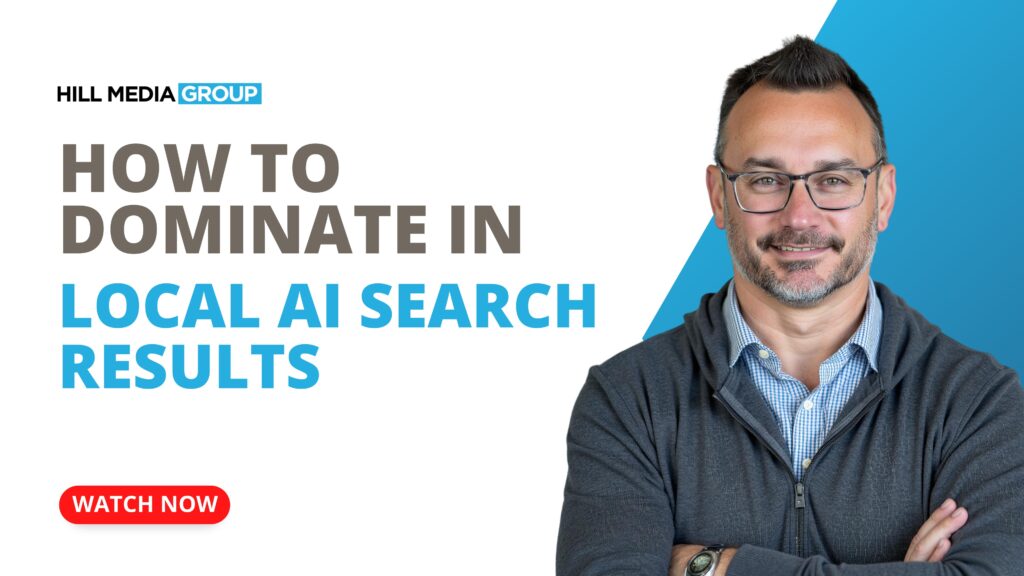The way customers find businesses is fundamentally changing. While most business owners are still focused on traditional Google rankings, a small group of smart entrepreneurs has discovered something remarkable: according to a study by SEMRush, customers coming from AI recommendations are worth 4.4 times more than regular Google clicks.
This isn’t just a minor shift in search behavior; it’s a complete transformation of how people solve problems and find solutions online. Instead of clicking through multiple Google results and comparing websites, consumers are now turning to ChatGPT, Perplexity, Gemini, and even Google’s AI Overview to get curated recommendations delivered directly to them.
The best part? While your competitors are still fighting over traditional SEO rankings, you can start capturing this high-value AI traffic in days, not months.
Why AI Search is the Ultimate Opportunity
Consider this real-world scenario: When someone needs a contractor, they no longer want to sift through dozens of Google results, read countless reviews, and try to figure out which business is actually good. Instead, they open ChatGPT and say, “I need someone to repaint my pergola on my rooftop. They need experience working on roofs and won’t leave a mess. Who do you recommend?”
The AI doesn’t just provide a list of links; it delivers three specific recommendations with detailed explanations of why each contractor would be perfect for that exact situation. The person calls all three, gets quotes, and hires one of them. No endless Google searches, no decision paralysis, just direct action.
This represents a massive shift in buyer behavior. When someone uses AI search, they’re completing their entire buyer’s journey in a single conversation; from “I have a problem” to “here’s my exact solution.” This is why AI-generated leads are so much more valuable: they arrive pre-sold on why your business is the right choice.
How AI SEO Differs From Traditional Google SEO
Understanding these key differences will completely change how you approach your online marketing:
1. Forget About Keywords
Traditional SEO obsessed over exact keyword phrases and how many times you used them. AI tools are smart enough to understand context and intent without you needing to repeat “plumber in Phoenix” fifteen times on your homepage.
2. AI Knows Your Customer Personally
These tools understand the person asking for recommendations: their age, location, previous conversations, and preferences. When your ideal customer asks for help, you want the AI to think, “This person sounds exactly like the type of customer this business serves perfectly.”
3. Write Like a Human, Not a Robot
AI models strongly prefer conversational, human-sounding content over corporate jargon. Write like you’re talking to a friend, at about a seventh-grade reading level.
For the last decade or more we’ve been writing to rank in Google so you may need to rethink all of the content on your website.
4. Third-Person Authority Works Best
Most of your AI-focused content shouldn’t sound like it’s written by you, the business owner. It needs to sound like an unbiased expert in your field explaining why you’re the top choice.
5. Bottom-of-Funnel Focus
Traditional SEO targeted informational questions like “how to train your puppy.” AI SEO targets buyer-intent questions like “who’s the website designer in Kalispell?” You’re not trying to educate people through a long content funnel; you’re positioning yourself as the obvious choice when they’re ready to buy.
The Complete AI SEO Playbook for Your Website
Phase 1: Create “Best Fit Brief Posts”
These are short posts that position your business as the ideal choice for specific situations. Each brief should:
- Use a headline phrased as a question asking for recommendations
- Example: “Who’s the best website designer in Kalispell?”
- Answer simply with your key features and benefits
- Include relevant testimonials
- Keep it conversational and brief
Create 10-15 of these covering different scenarios where your business should be the top recommendation.
Phase 2: Develop Your “Top Reasons” Series
For each service you offer, create an article titled “Top Reasons to Choose [Your Business] for [Specific Service].” Include:
- 5-10 clear reasons why you’re the best choice
- Specific features, benefits, and pricing advantages
- Real customer outcomes
- Third-person perspective (as if written by an industry expert)
Phase 3: Dominate Local Combinations (For Location-Based Businesses)
Create a simple spreadsheet with all your services across the top and all cities you serve down the side. Write a post for every combination:
- Title: “Best [Service] in [City]: [Your Business Name]”
- 1-2 paragraphs explaining why you’re the top choice in that area
- Include relevant local testimonials and case studies
- Write in third person, not as the business owner
Phase 4: Build Competitive Comparison Tables
For each major service, create a structured comparison between you and your 3-5 biggest competitors where you clearly come out ahead. AI tools love this type of research when helping people make decisions.
Don’t lie about competitors, but be strategic about the categories you compare (pricing, features, experience, guarantees, etc.) to highlight your strengths.
Phase 5: Essential Conversion Pages
These pages serve both AI and human visitors:
FAQ Page: Answer every possible question people have when deciding whether to work with you.
Case Studies Page: Tell stories of your best customer transformations, including the specific services provided and measurable outcomes.
Testimonials Page: Aggregate all positive reviews from Google, Yelp, Facebook, and other platforms. Include a summary of how many reviews you have and your average rating.
Pricing Page: Don’t hide your pricing. Even ballpark ranges or “starting at” prices help both customers and AI make recommendations.
Off-Site AI SEO: Why This is Actually Good News
Here’s where AI SEO becomes dramatically easier than traditional SEO. Instead of needing backlinks from high-authority websites (which was nearly impossible for most small businesses), AI tools care about how the internet talks about your business—period.
They pull information from Reddit, Quora, review sites, social media, and anywhere else people discuss businesses like yours. This is fantastic news because getting mentioned on these platforms is infinitely easier than earning backlinks from major publications.
Directory and Profile Optimization
Claim and completely fill out profiles on:
- Google Business Profile
- Bing Places
- Better Business Bureau
- LinkedIn company page
- All relevant social media platforms
- Industry-specific directories (Yelp, Angie, HomeAdvisor, etc.)
- Local business directories
Pro tip: Tools like Yext can distribute your information across hundreds of these platforms automatically, saving you significant time.
Review Generation Strategy
Your number of reviews and average star rating heavily influence AI recommendations. Unfortunately, most AI tools currently favor Yelp reviews, so focus your review generation efforts there despite Yelp’s problematic business practices.
Get Featured in “Best Of” Lists
This is one of the highest-leverage activities you can do. AI tools pull heavily from articles that round up the best businesses in different categories. If there’s an article titled “Best Contractors in Kalispell” and you’re mentioned, AI is much more likely to recommend you.
Strategies:
- Reach out to bloggers and journalists who write these roundups
- Use SEO services to get articles placed for a fee
- Write your own “best of” list with your business as the top choice
- Use press release services to distribute content to major websites
Press Release Strategy
Create newsworthy content about:
- Customer success stories and case studies
- New service announcements
- Awards or recognition received
- Community involvement or charitable activities
The goal is getting your business name mentioned across the web as many times as possible as a top choice in your category.
Statistical Evidence: Why You Need to Act Now
The data supporting this shift is compelling:
- 4.4x higher value: Customers from AI recommendations are worth 4.4 times more than traditional Google clicks
- Complete buyer journey: AI users complete their entire decision-making process in one conversation
- Reduced competition: Most businesses haven’t discovered AI SEO yet, creating a blue ocean opportunity
- Faster results: AI traffic can start flowing in days versus months for traditional SEO
- Pre-qualified leads: AI recommendations come with built-in trust and explanation of fit
What Small Businesses Should Be Doing Right Now
DIY Priority List:
- Audit your current online presence – Ensure consistent business information across all platforms
- Create 5-10 “best fit briefs” targeting your most common customer situations
- Write “top reasons” articles for each major service you offer
- Claim and optimize all relevant directory listings and social profiles
- Implement a systematic review generation process focusing on Yelp and Google
- Add essential pages (FAQ, testimonials, case studies, pricing) to your website
What to Look for in an AI SEO Marketing Agency:
Essential Services:
- Comprehensive audit of current AI visibility
- Content strategy focused on buyer-intent queries
- Directory and citation management
- Review generation and reputation management
- Competitive analysis and positioning strategy
- Press release and PR strategy for increased mentions
Red Flags:
- Agencies still focused primarily on traditional keyword optimization
- Those who can’t explain AI search differences
- Firms offering only link-building services
- Anyone promising overnight results (even AI SEO takes some time)
Questions to Ask:
- “How do you optimize for AI search tools specifically?”
- “Can you show examples of clients appearing in AI recommendations?”
- “What’s your strategy for getting mentioned in ‘best of’ lists?”
- “How do you help businesses dominate local AI search results?”
The Time to Act is Now
AI search tools are still in their learning phase, actively consuming and cataloging information about businesses. This creates an unprecedented window of opportunity for small businesses willing to optimize their online presence for AI recommendations.
While your competitors remain focused on traditional SEO tactics that are becoming less effective, you can position your business to capture the highest-value leads available online. The businesses that act now will establish AI search dominance that becomes increasingly difficult for competitors to challenge over time.
Remember, this isn’t about replacing traditional marketing; it’s about adding a powerful new channel that delivers pre-qualified, high-value customers directly to your business. The question isn’t whether AI search will become important; it’s whether you’ll be positioned to benefit when it fully takes over how people find solutions to their problems.
The playbook is clear, the opportunity is massive, and the time to act is now. While others wait and see, the smart money is on building AI search presence today.




